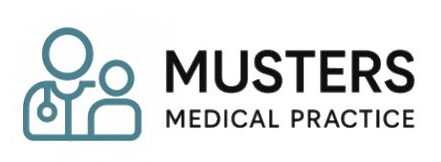The Care Quality Commission (CQC) are the independent regulator of health and adult social care in England.
The CQC make sure health and social care services provide people with safe, effective, compassionate, high-quality care and encourage them to improve.
They monitor, inspect and regulate services to make sure they meet fundamental standards of quality and safety and publish what is found, including performance ratings to help people choose care.
Our GP Practice has recently undergone a CQC inspection and the results are now freely available on the CQC Website.
The Results were:
Safety – Good
The practice is rated as good for providing safe services. Staff understood and fulfilled their responsibilities to raise concerns, and to report incidents and near misses. Lessons were learned and communicated widely to support improvement. Information about safety was recorded, monitored, appropriately reviewed and addressed. The practice had robust systems to deal with emergencies and had a comprehensive business continuity plan in place.
Risks to patients were assessed and managed, however the practice did not have oversight of all the risks relating to the day to day running of the practice. For example in relation to areas such as conducting and documenting regular health and safety checks and risk assessments for manual handling.
Effectiveness – Good
The practice is rated as good for providing effective services. Data showed patient outcomes were generally better than the average for the locality. For example, the practice performed best within the local area in respect of the lowest rate of emergency admissions between June 2014 and May 2015. Staff had access to local and national guidelines and used these routinely to plan and deliver patient care.
We saw evidence of effective multidisciplinary working and feedback from external stakeholders was very positive.
Staff had received training appropriate to their roles and any further training needs had been identified and planned to meet these needs. Staff told us they had received appraisals in the last 12 months and computer records showed the dates these had been held, however records of appraisals were missing at the time of the inspection.
Caring – Good
The practice is rated as good for providing effective services. Data showed patient outcomes were generally better than the average for the locality. For example, the practice performed best within the local area in respect of the lowest rate of emergency admissions between June 2014 and May 2015. Staff had access to local and national guidelines and used these routinely to plan and deliver patient care.
We saw evidence of effective multidisciplinary working and feedback from external stakeholders was very positive.
Staff had received training appropriate to their roles and any further training needs had been identified and planned to meet these needs. Staff told us they had received appraisals in the last 12 months and computer records showed the dates these had been held, however records of appraisals were missing at the time of the inspection.
Effectiveness – Good
The practice is rated as good for providing effective services. Data showed patient outcomes were generally better than the average for the locality. For example, the practice performed best within the local area in respect of the lowest rate of emergency admissions between June 2014 and May 2015. Staff had access to local and national guidelines and used these routinely to plan and deliver patient care.
We saw evidence of effective multidisciplinary working and feedback from external stakeholders was very positive.
Staff had received training appropriate to their roles and any further training needs had been identified and planned to meet these needs. Staff told us they had received appraisals in the last 12 months and computer records showed the dates these had been held, however records of appraisals were missing at the time of the inspection.
Leadership – Good
The practice is rated as good for being well-led. It had a clear vision and strategy. Staff were clear about the vision and the practice values and their responsibilities in relation to this.
There was a clear leadership structure and staff felt supported by management and their colleagues. The practice had a number of policies and procedures to govern activity and held regular governance meetings. There were systems in place to monitor and improve quality and identify risk. The practice proactively sought feedback from staff and patients, which it acted on. The patient participation group (PPG) was active and had been involved in the design of the new practice building. Staff had regular access to training and attended staff meetings and events.

